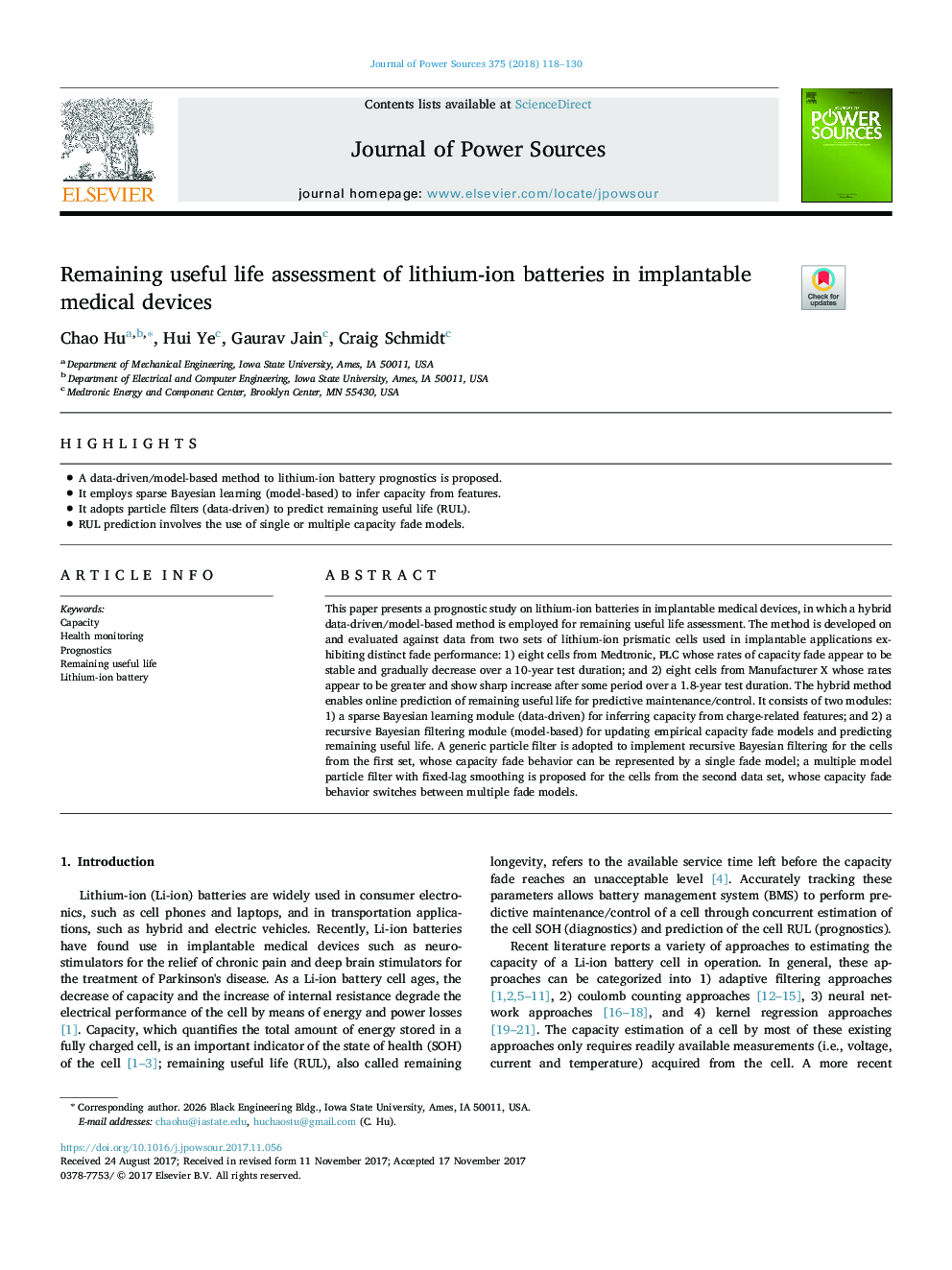| Article ID | Journal | Published Year | Pages | File Type |
|---|---|---|---|---|
| 7726203 | Journal of Power Sources | 2018 | 13 Pages |
Abstract
This paper presents a prognostic study on lithium-ion batteries in implantable medical devices, in which a hybrid data-driven/model-based method is employed for remaining useful life assessment. The method is developed on and evaluated against data from two sets of lithium-ion prismatic cells used in implantable applications exhibiting distinct fade performance: 1) eight cells from Medtronic, PLC whose rates of capacity fade appear to be stable and gradually decrease over a 10-year test duration; and 2) eight cells from Manufacturer X whose rates appear to be greater and show sharp increase after some period over a 1.8-year test duration. The hybrid method enables online prediction of remaining useful life for predictive maintenance/control. It consists of two modules: 1) a sparse Bayesian learning module (data-driven) for inferring capacity from charge-related features; and 2) a recursive Bayesian filtering module (model-based) for updating empirical capacity fade models and predicting remaining useful life. A generic particle filter is adopted to implement recursive Bayesian filtering for the cells from the first set, whose capacity fade behavior can be represented by a single fade model; a multiple model particle filter with fixed-lag smoothing is proposed for the cells from the second data set, whose capacity fade behavior switches between multiple fade models.
Related Topics
Physical Sciences and Engineering
Chemistry
Electrochemistry
Authors
Chao Hu, Hui Ye, Gaurav Jain, Craig Schmidt,
